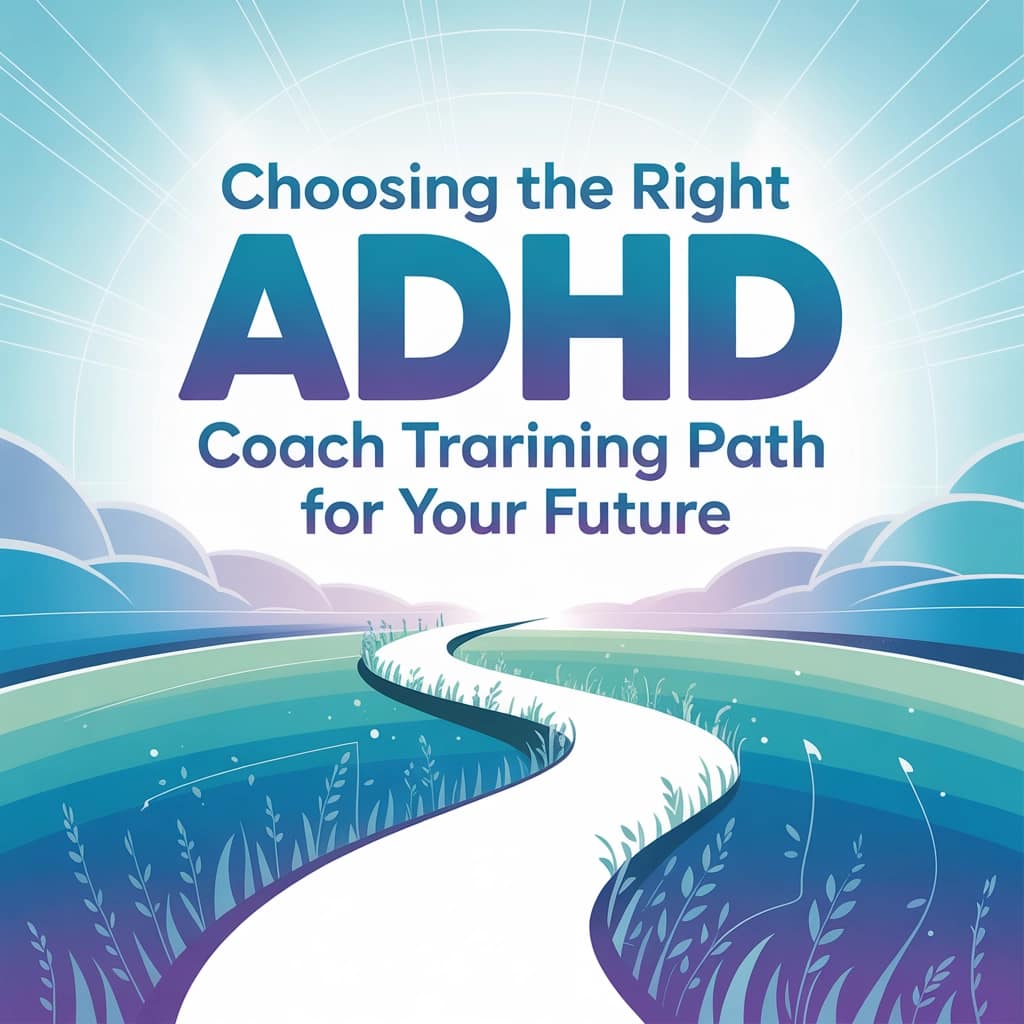So, you want to help people thrive with ADHD, maybe because you’ve lived it, supported someone who has, or honestly — you’re sick of seeing neurospicy folks get stuck in chaos, burnout, and bad advice. ADHD coach training could be your next big leap. And if you’re anything like the ADHD entrepreneurs, creatives, and business owners I work with at PhilanthroPeak, you want real tools, not cookie-cutter fluff.
But here’s the sticky bit: ADHD coach training isn’t a one-path game. It’s more like picking the right toolkit for your brain and your future. Let’s break it all down, no jargon, just reality.
Why ADHD Coaching Is Needed (and Why It Matters)
Straight talk: ADHD coaching changes lives. More and more adults are finally getting diagnosed, and our world (even the business world) is waking up to the fact that neurodiverse brains bring incredible value — if their environment works for them, not against them.
But everything out there is built for the “typical” brain.
That’s why so many ADHDers struggle with traditional business advice, time management hacks, and productivity systems that feel like torture.
ADHD coaching is about flipping that script: You’re not “broken,” you just need the right playbook.
The Real Questions You’re Probably Asking
- Is ADHD coach training legit, or is it just a buzzword?
- Do I actually need a certification — or will lived experience cut it?
- What’s the difference between ICF, PAAC, and a million other acronyms?
- Will I get clients? Will they take me seriously?
- How do I pick a path that actually fits my life (without burning out)?
These are the questions I hear every week from people who want to do this work. Let’s tackle them, one by one.
Understanding ADHD Coach Training — The Fundamentals
First off, let’s get this clear: “ADHD coach training” isn’t just regular life coach certification with “ADHD” slapped on. It’s specialist territory.
You’re learning how to:
- Decode executive function hurdles
- Build ADHD-friendly systems and frameworks (think: daily routines that actually work)
- Empower clients with custom business toolkits, not one-size-fits-all fixes
- Nurture self-leadership in people who’ve spent their lives feeling “too much” or “not enough”
Here at PhilanthroPeak, our entire business is built around real, ADHD-friendly success strategies. If you want to help people unlock focus, clarity, income, and consistent growth — that starts with your own ADHD coach training.
What Makes a Great ADHD Coach (Hint: It’s Not Just the Certificate)
If you want to stand out — and actually get results — you’ll need a few things:
- Rock-solid understanding of ADHD (not just the textbook stuff)
- Lived experience, empathy, and an ADHD lens on all the business “norms”
- Evidence-based coaching skills (this is where formal training matters)
- An ability to adapt systems for real people — especially when their brain forgets the system exists by Tuesday
It’s a mix of science, strategy, and a big sprinkle of compassion.
Clients recognise the real deal. The best ADHD coaches flex around their clients’ wiring, not force them into impossible routines.
ADHD Coach Training: The Big Accreditation Players
This is where things get alphabet soup-y, but hang with me.
- ICF (International Coach Federation): The gold standard for coaching overall. Having an ICF credential opens doors and shows you’re committed.
- PAAC (Professional Association for ADHD Coaches): The specialist option focused on ADHD. They accredit only a handful of rigorous, in-depth ADHD coach training programs.
- ADDCA (ADD Coach Academy): Well-known, PAAC-accredited, global reach.
- MentorCoach, JST Coach, Coach Approach Training: All reputable options. Each brings a bit of their own flair.
Pro tip: Pick a program with PAAC or ICF accreditation. It signals you did your homework.

Picking Your ADHD Coach Training Path: Questions to Ask Yourself
Ready to choose your adventure? Here’s what to mull over (these are the exact questions I ask new coaches):
- Who do you want to help?
Entrepreneurs? Students? Parents? People burned out by hustle culture? - What’s your “why”?
Most great ADHD coaches have skin in the game (their own diagnosis, or someone close to them). - How do you want to learn?
Fully online, hybrid, self-paced, or group cohorts? - Do you want a deep dive — or to add ADHD to your existing toolkit?
- What’s your budget (time and money)?
- Do you want a global credential (ICF) or a niche specialist cert (PAAC, ADDCA)?
Writing your answers down takes some mental gymnastics, but it’s worth it.
Top ADHD Coach Training Program Styles (And Who They Suit)
Fully Integrated ADHD Coach Certification
Best for: Beginners, career changers, or anyone who wants the “whole package”
- Combines general coaching skills with ADHD specialisms
- Includes peer supervision, live practice, and business-building tips
- Takes commitment — up to 12-18 months if you go deep
Popular programs:
- ADD Coach Academy (ADDCA)
- JST Coach Training
- MentorCoach
ADHD Coach Specialist Add-Ons
Best for: Existing coaches, therapists, or professionals who want to niche down
- Already have foundational coaching, but want ADHD-specific strategies
- Sometimes shorter, but expect to prove existing coaching chops
Options include:
- Coach Approach Training
- Individual workshops with ADHD experts like Jeff Copper, Brooke Schnittman, etc.
Fast-Track / Workshop Model
Best for: People on a shoestring schedule or budget (but be wary)
- Usually shorter, less intensive — may not qualify for accreditation
- Works if you want a taste, but won’t get you full professional recognition
A Day in the Life: Real Stories from ADHD Coach Trainees
Let’s keep it real — not everyone who signs up for ADHD coach training finishes with fireworks.
But some do seriously change not just other people’s lives, but their own.
Like Jess, a burned out startup founder with ADHD who went through a fully integrated program. She tells me she learned more about her own nervous system in six months than a decade of therapy. Now she runs ADHD-friendly business intensives for neurodiverse teams.
Or Alex, a former teacher, who added ADHD coaching modules to her practice. Suddenly, she’s not just supporting kids — she’s equipping parents with real-life productivity frameworks that finally stick.
The takeaway: It’s not just about the certificate. It’s who you become in the process.
What’s Actually Involved? The Real Requirements
Training Time
- For PAAC-accredited ADHD coach training:
- Expect 95–125 total training hours (combining ADHD and general coach skills)
- For ICF-credentialed paths:
- At least 60 “approved coach-specific training hours” (sometimes more)
- Almost all require live practice coaching sessions
- Supervision hours where you get feedback on your real-world work
Practical Experience
- Recorded client calls
- Portfolio with documentation of coaching sessions (sometimes with detailed reflective logs)
- Oral and written assessments
- Group supervision/peer review
Investment
- Courses start around £2,000 (for basic foundations) and can hit £7,000+ for gold-standard programs
- Some offer payment plans or scholarships
Ongoing Professional Development
- The best ADHD coaches keep learning: Certification doesn’t end learning, it begins it. Look for programs with future community events, alumni coaching calls, or a network you can tap into.
Accreditation Matters (But Lived Experience Counts, Too)
ADHD coach training opens doors, but don’t ignore your story.
If you’ve run businesses, built your own ADHD systems, or felt the sting of chaotic routines — that’s a selling point.
Clients are looking for you, not a robot.
But… without reputable ADHD coach training, you might find it tough to:
- Get referrals from healthcare providers or ADHD orgs
- Secure insurance partnerships
- Charge premium rates for business coaching
So, certification = street cred, but your journey = secret sauce.
If you want your training to pack a punch — make sure it offers both the science and the art.
Learning Formats: Flex It to Fit Your Life
The ADHD entrepreneur’s enemy? Rigid routines that implode the minute life gets spicy.
Options to Explore:
- Weekly live classes: Great for accountability, but requires you to show up
- Self-paced online modules: Super flexible, but you’ll need self-motivation
- Weekend intensives: Perfect for deep dives, but can be exhausting
- Peer support + supervision: Critical for feedback and growth
Choose what you will finish, not the “ideal world” option.
Red Flags & Pitfalls in ADHD Coach Training
Not all that glitters is gold.
Here’s what you want to avoid:
- No accreditation: If neither ICF nor PAAC recognises it, steer clear
- No practicum or supervision: Theory without practice = shaky skills
- Wild promises: Any program that promises “six figures in six months” runs on hype, not substance
- Poor post-course support: What happens after you graduate? Crickets are not a career plan
What Happens When You’re Qualified?
You’ve done the coursework, nailed the supervision, and earned your badge. What next?
For PhilanthroPeak’s coaches and students, this is where the real fun begins:
- You start helping clients build ADHD-friendly businesses and lifestyles
- You join a network of ADHD-focused pros
- You use tools like The ADHD Business Compass™ — our flagship system for creating clarity, revenue, and sustainable progress for neurodiverse business owners (grab the details here)
Employers, clients, and even NHS trusts are clocking onto the value of accredited ADHD coaching for entrepreneurship, leadership, and wellbeing. Your future impact? Massive.
Staying Connected: Community Is Everything
ADHD coaching isn’t solo work. Get plugged in:
- Attend ACO, ADDA, CHADD conferences
- Participate in PAAC/ICF calls and online communities
- Stay sharp with ongoing CPD events and masterminds
FAQs About ADHD Coach Training
Do I need to be ADHD myself?
Nope, but personal insight helps massively. If you “get” neurodiversity, clients feel that.
Can I make a living as an ADHD coach?
Absolutely. Demand has never been higher — especially for ADHD business, executive, and entrepreneurship coaching.
How long does it take to become qualified?
A quality ADHD coach training path takes anywhere from 6 to 18 months depending on certification level, learning style, and how much you want to juggle at once.
Will I get clients?
If you back up your ADHD coach training with real results, a decent marketing plan, and good networking, yes. Pro tip: Lean into reviews, share your journey, get referrals from ADHD communities.
Where can I learn more about how coaching works at PhilanthroPeak?
We’ve got full details about how we train ADHD entrepreneurs to master productivity, routines, and revenue — without boring systems or neurotypical pressure. Explore The ADHD Business Compass™ for a hands-on view.
Not sure which ADHD coach training path is right for you? Take your time.
Research. Compare. Ask for alumni stories. And always, always check for PAAC or ICF accreditation.
ADHD coach training isn’t about ticking boxes.
It’s about equipping yourself to build real transformation — in your client’s life, in your own business, and in a neurodiverse world that desperately needs new systems.
If ADHD coach training is your thing, and you want to make a difference, you’re in the right place.




